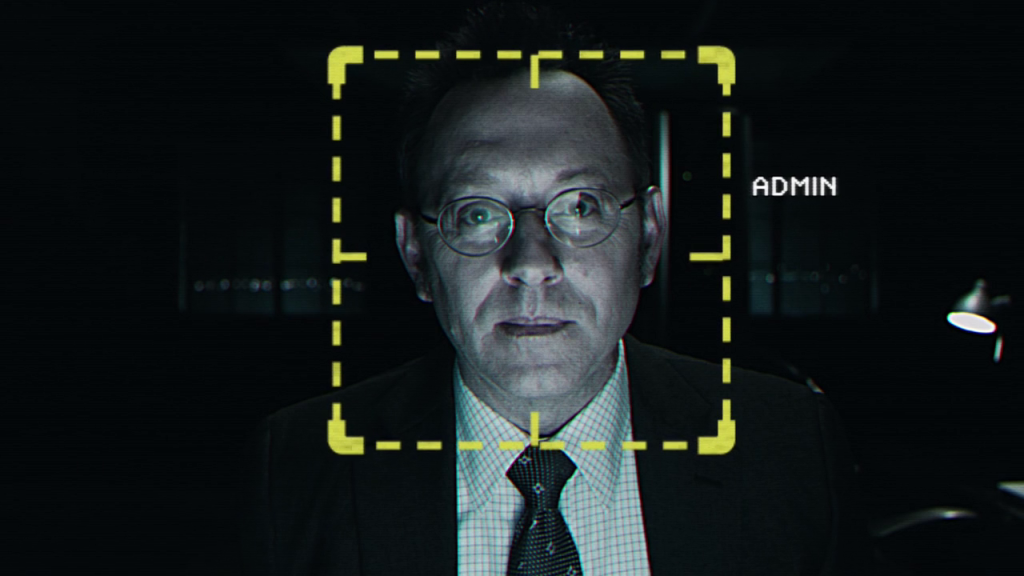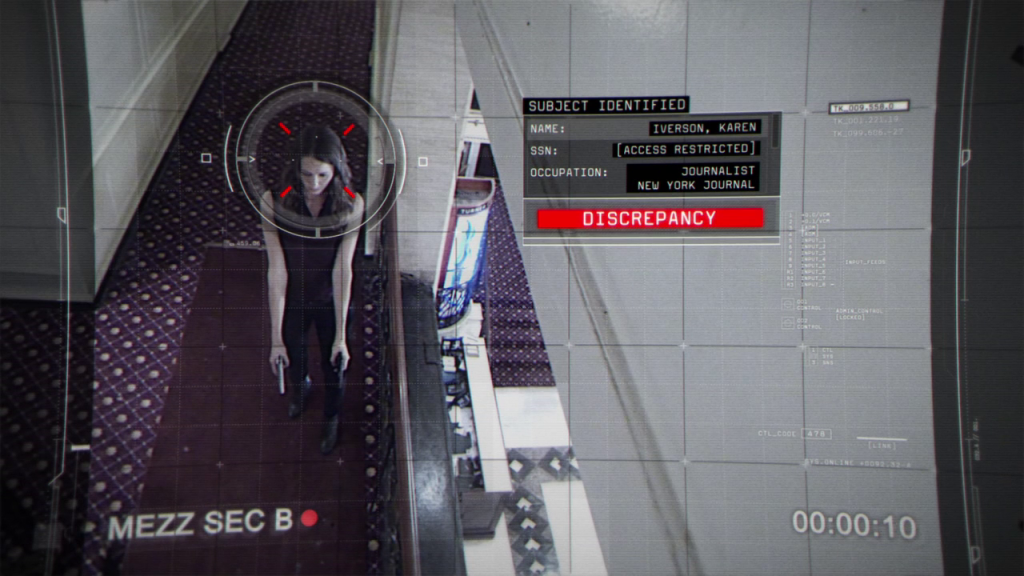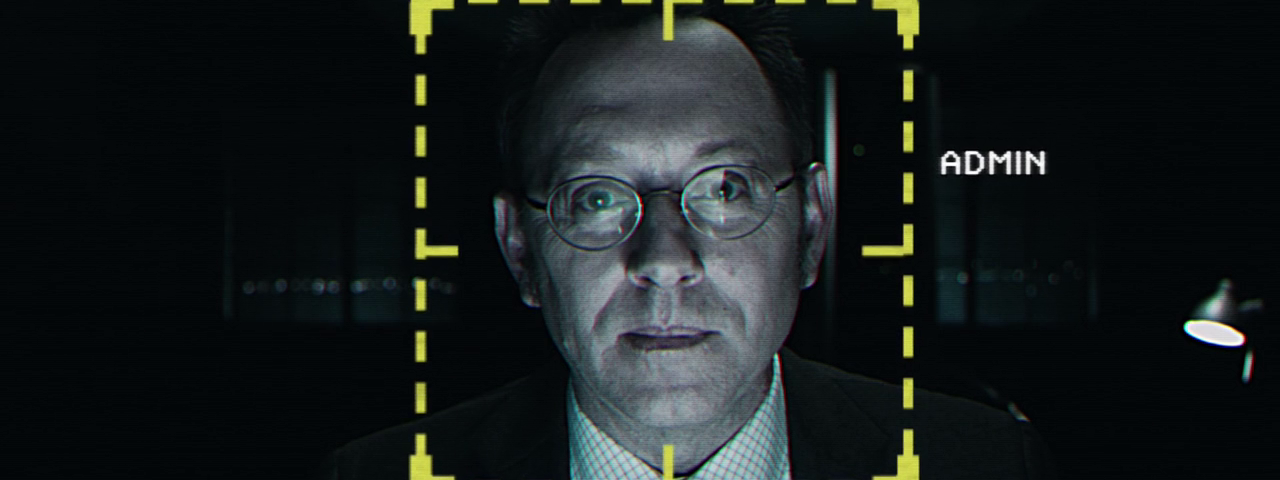
Procedurals have an annoying habit of trying to incorporate topical news stories into their plots. From Law & Order looking into the subject of sexting to Bones “visiting” New Orleans after Katrina to Criminal Minds investigating a strain of Ebola that only targets single females, topical episodes usually end up feeling gimmicky and out of place. When I realized that this week’s episode, Prophets, would be focused of a prominent political statistician with highly accurate predictions, I felt a brief spark of concern. However, Prophets isn’t just a great episode but a stellar one. The statistician, Simon, unknowingly ends up in the crosshairs of Samaritan when he realizes that the election was manipulated in order to force his candidate to lose.
First and foremost, Root is far more central to this week’s episode than she was in any other episode this season and we finally get some answers as to why her cover identity appears to shift from one episode to the next as well as to how her communication with the Machine has been limited. That is to say that the Machine hasn’t been communicating with her at all, at least not directly. It’s been hiding messages for her in white noise and encrypted signals and essentially leading her around via digital breadcrumbs. And, unlike the rest of the main cast, her identity shifts every few days, allowing her a greater degree of freedom, but also keeping her constantly occupied. Between her growing concern for her “god,” and her constant shedding of her identity, it makes sense that Root’s “perky psycho” demeanor, as Shaw calls it, has begun to erode. The scene in which Finch confronts and attempts to comfort her is particularly effective as Acker really sells the idea that she is tired, alone, and afraid. She bounces back quickly, but it’s an impressive moment of vulnerability from a character who is more often defined by her detachment.

Prophets also presents a number of flashbacks that detail Finch’s early trials with prototypes of the Machine. Those scenes do an exceptional job at contextualizing many of the fears that Finch has had regarding the Machine since the beginning of the series. He has always asserted that he made the Machine a closed system in order to keep it protected from outside forces, but, really, that is only a half truth. He was just as concerned about keeping the outside forces protected from the Machine. As he explains to Nathan in one of the flashbacks, systems do not possess morality. They only possess objectives and processes by which those objectives can be accomplished. It is through this lens that he views his Machine. Its primary objective is to protect the numbers, but, from Finch’s perspective, it is only because he shackled it and isolated it that the Machine has proven to be an ally. Of the forty-three systems he constructed, the Machine is the only one that didn’t try to trick or kill him, but it has worked its way around many of the limits that he placed upon it and he is convinced that, if it viewed him as a threat, that the Machine may very well cast him aside or eliminate him. These glimpses serve to establish him as an effective mirror to the immense faith that Root places in the Machine.
Reese spends the episode effectively benched due to an internal affairs investigation. His tendency to perform knee surgery via ballistics has started to bit him in the ass and, until he is approved by a psychiatrist, he is restricted to desk duty. The scenes between Reese and the psychiatrist could arguably be viewed as disconnected from the primary plot, but they tie in to the tone of the episode quite effectively. The show still hasn’t forgotten Carter, and her death continues to affect the characters as well as the audience. For Reese, she serves as a driving force that urges him to try and save as many people as possible, and for the viewers, her death adds weight to Root’s assertions that there is no way in hell that they are all making it through their war with Samaritan alive.

It’s relatively rare for a television program to make me fear for the well being of a main character. Television, U.S. network series in particular, tend to maintain a clearly established status quo, and the rare instances in which that status quo is broken or altered tend to only come about at the end of seasons. Despite this, Prophets made me legitimately fearful for a fictional character’s well being. I honestly felt slightly ill during the climax, due to that anxiety. I assure you, this is high praise. Prophets’ cat and mouse tactics as the group tries to protect Simon are slightly more subdued than in an episode like Nautilus, but that allows its characters more time to breathe and results in Prophets being the strongest episode of the season so far.
Before I wrap up, a few Notes and Nitpicks:
- The song that plays during the climax is “Young Men Dead” by The Black Angels which also appeared in True Detective and Fringe. The moment I heard the opening chords of a Black Angels song, my stomach dropped. I’ll be having Spec Ops: The Line flashbacks for a bit.
- Fusco, once again, is stuck in the position of not being able to do much aside from throw a couple complaints at John. I’m concerned that the decision to make Reese a cop may have inadvertently made Fusco’s character a little superfluous.
- My concerns regarding Person of Interest doing a mediocre “topical” episode are not unfounded. One of my least favorite episodes from the series is season 2’s Proteus, which is essentially a mediocre Key Largo inspired plotline that only exists because Hurricane Sandy was still prominently featured in the public consciousness at the time.
- Wrenn Schmidt is credited in at least one other episode this season, which suggests that we haven’t seen the last of Reese’s therapy sessions just yet… How does that make you feel?
Prophets is a brilliant episode that works on both across both intellectual and emotional levels. It serves as strong evidence that Person of Interest remains not only one of the smartest procedurals on TV, but also one of the smartest shows on TV.





Add comment